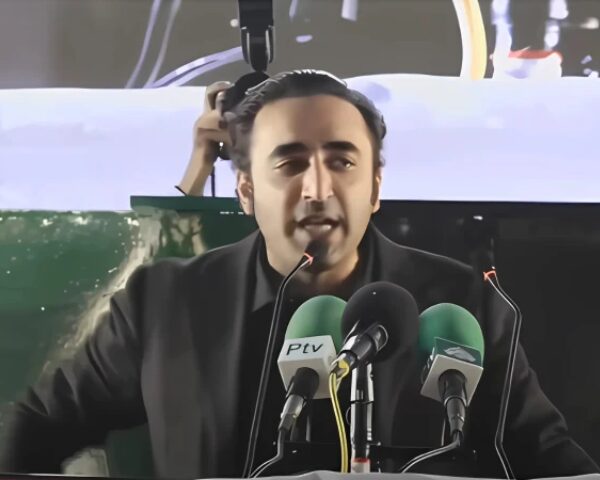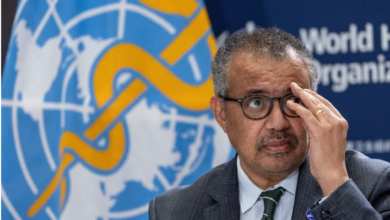While questioning the motives of those supporting both the Pakistan Tehreek-e-Insaf (PTI) founder and Israel’s government, Pakistan Peoples Party (PPP) Chairman Bilawal Bhutto Zardari raised concerns over foreign backing for Imran Khan, stating that the people supporting him are the same ones who oppose Pakistan’s nuclear and missile programmes.
Speaking on the death anniversary of Benazir Bhutto at his ancestral village in Sindh on Friday, Bilawal warned of an ongoing global conspiracy against Pakistan.
“We need to unite to safeguard our country, as external forces are looking to undermine Pakistan’s nuclear capabilities. They do not want any Muslim nation to have such power,” he said, referencing recent US restrictions on missile systems.
He reaffirmed PPP’s commitment to protecting Pakistan’s nuclear programme and missile technology. “As long as PPP is here, we will not allow any compromises on our nuclear strength or missile program,” he declared.
“The people supporting Imran Khan are the same who oppose Pakistan’s nuclear and missile programs. This raises the question: do they want a government in Pakistan willing to sell out on every issue to gain power?” he said.
Bilawal reiterated that PPP and its supporters would continue to fight against any conspiracies to undermine Pakistan. “We will ensure that Pakistan remains secure, just as we have protected it in the past, and we will continue to safeguard it in the future,” he concluded.
He further stated, “Those who orchestrated Benazir Bhutto’s assassination were under the false impression that without her, the voices of Sindh, Balochistan, Khyber-Pakhtunkhwa, Punjab, the federal government, Gilgit-Baltistan, and Kashmir would be silenced forever, and Pakistan would be ruled by puppets who are ready to trade away their stance, ideology, and the rights of the people for power.”
He stressed that the current government, made up of these puppets, is prepared to harm the country just to sit on the throne in Islamabad. “Since December 27, 2007, the people of Pakistan have faced immense difficulties because these puppets were imposed on us after the assassination of Benazir Bhutto,” he said.
Reflecting on the current government’s formation, Bilawal said that the PPP had supported the ruling party at the time with the promise of political stability and addressing inflation.
“We signed agreements with the assurance that we would work together for national development, particularly in underdeveloped regions. However, implementing those agreements has failed so far,” he explained.
He continued, “The government has failed to deliver on promises, including joint projects for the underdeveloped regions, and we have not been able to fulfill our commitment to our constituents. We must work with Parliament and reach consensus on every issue to address Pakistan’s challenges effectively.”
Bilawal strongly emphasized that the government does not have the mandate to make unilateral decisions, stating, “The government’s mandate lies in making collective decisions, not in unilateral actions. I urge the President of Pakistan to advise the government that decisions made through consensus are the strongest and lead to genuine solutions.”
He further pointed out the multitude of crises facing Pakistan today, from economic challenges to rising terrorism, internal issues within provinces, and increasing external pressures.
“The country is at a critical juncture, facing many internal and external challenges. To address these issues, all political parties and stakeholders must unite. No single political party has the mandate or power to tackle both internal and external crises on its own,” he stressed.
He declared, “We are not selected, and we are not those who rely on Form 47. We are a party accountable to the people, and we will continue to work for their rights.”
He added that while PPP’s numbers in the National Assembly may not be large, their commitment to accountability to the people remains firm.







